American Revolution *13 Suprising Things
The American Revolution, a political and ideological revolution started in 1765 and resulted in a victory for American forces in 1791. Want to know what happened, then read on….
The Americans in the Thirteen Colonies formed independent states that defeated the British in the American Revolutionary War and established their own government, the United States of America, under a new constitution ratified in 1788.
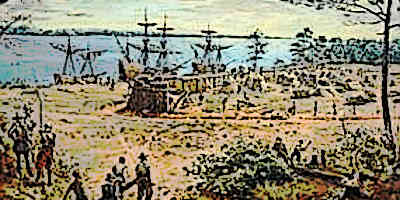
The revolution began among those who condemned the policies of British Prime Minister George III, including taxation without representation, the suppression of trade with non-British nations and control of colonial affairs by the British Parliament.
Many Americans believed these actions violated their rights as Englishmen and that Parliament had no authority over them.
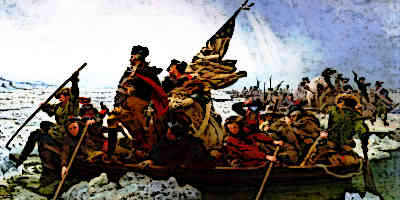
1. The Declaration of Independence wasn’t actually signed on the 4th of July
It was actually signed on August 2, 1776. The Declaration of Independence is a document that formally announced that 13 British colonies in North America were no longer part of the British Empire and would henceforth be independent states.
It was written by Thomas Jefferson and adopted on July 4, 1776 in Philadelphia, Pennsylvania.
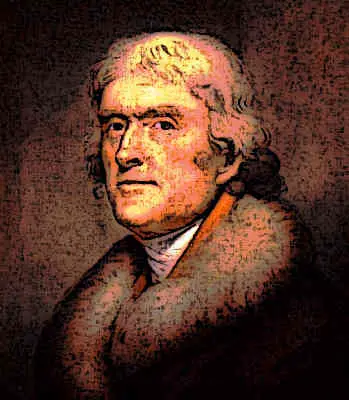
Thomas Jefferson Founding Father 3rd President of America Portrait Painting
2. Benjamin Franklin tried to get the turkey made the national bird
One of the more famous symbols of the revolution is the bald eagle. Benjamin Franklin tried to get turkey made the national bird, but alas he was unsuccessful.

3. Yankee Doodle was originally a British song used to make fun of Americans
The song ‘Yankee Doodle’ was originally a British song and was used to make fun of Americans. After the revolution, it became an anthem for America.
4 .George Washington never actually resided in the White House
George Washington, who was the first president of the United States, never lived in the White House during his time as president. He did not live there because he had been living in Philadelphia before he became president and then moved back to Virginia after his presidency ended.
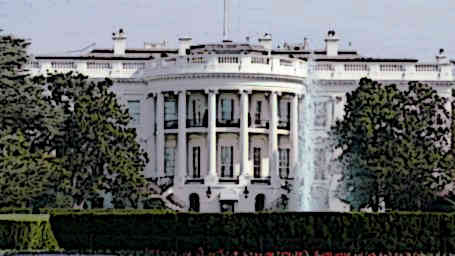
5. Paul Revere didn’t actually shout the British are coming!
In fact, Paul Revere never made his famous ride to warn the Americans that the British were coming. He sent a messenger, who was captured and held prisoner. Paul Revere sent another messenger to deliver the message that the British were coming and it is this second rider who shouted The British are coming!
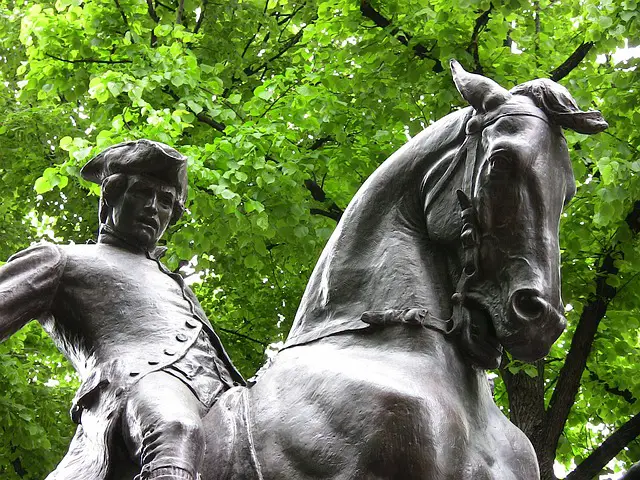
6. There were women soldiers in the Continental Army
Women did not fight in the Continental Army, but there were women soldiers in the Continental Army. They were called Molly Pitcher because they would take over from their husbands and fathers on the battlefield.
The first woman soldier to be recorded in the annals of military history was Deborah Sampson, a 23-year old who disguised herself as a man and enlisted in 1782 under the name Robert Shurtleff.
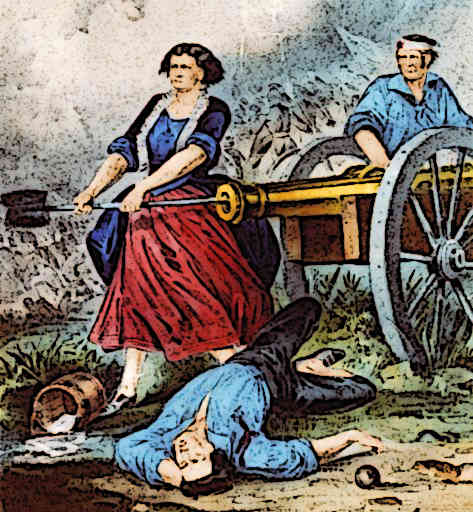
Molly Pitcher
7. Molly Pitcher fought in the Battle of Monmouth
Molly Pitcher was a woman who carried water to soldiers on the battlefields and fought in the Battle of Monmouth. When her husband died at the Battle of Monmouth, she took up his place as an artilleryman.
A nickname for her is Lady Liberty because of her contributions to the Revolutionary War effort.
8. France helped America and played a key role in their victory
In 1778, France signed the Treaty of Alliance with America and became a formal ally of the United States in their struggle for independence from Britain. France funded their revolution and sent troops to fight on their behalf. This was crucial to their success.
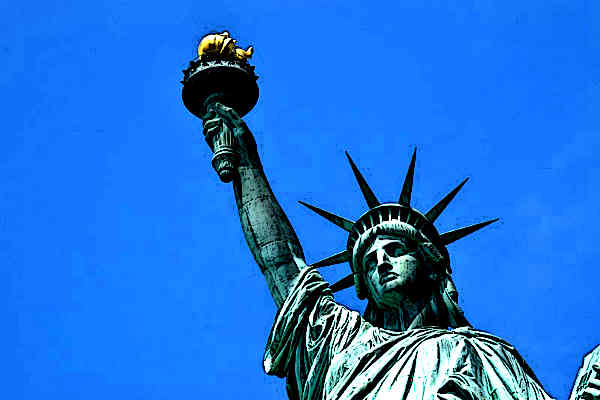
9. The Battle of Bunker Hill was a disaster for the British
The Battle of Bunker Hill was a disaster for the British. On June 17, 1775, General Thomas Gage led an assault on Breed’s Hill with 2,200 British troops and they were met by 1,500 colonists defending the hill. The British captured the hill after a short battle but suffered heavy losses. The Americans lost 90 men while the British lost 400 men and 12 officers.
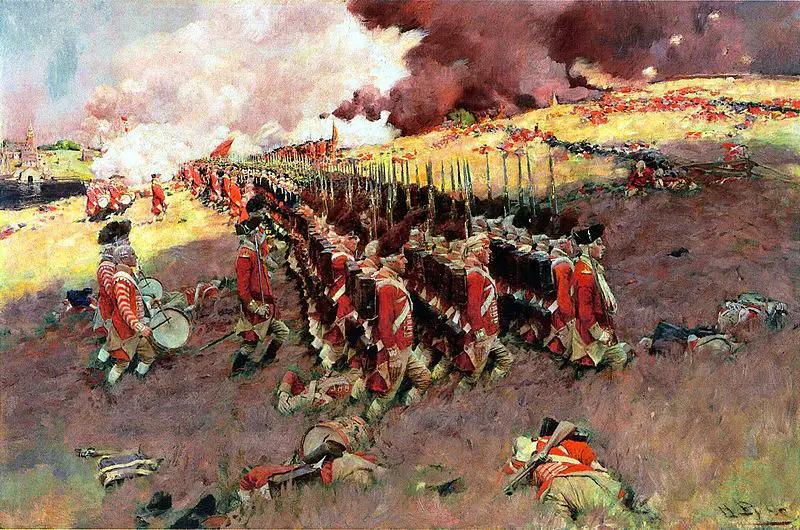
10. In 1775 Ethan Allen along with the Green Mountain Boys captured Fort Ticonderoga
They were able to do this because of the fort’s design, which had only one entrance with a drawbridge.
11. Benjamin Franklin designed the first American flag
Benjamin Franklin designed the first American flag in 1776, and it was made of thirteen stripes and thirteen stars to represent the original Thirteen Colonies. The colors of the flag were chosen because they were symbols of British identity:
- Red symbolized hardiness and valor
- White symbolized purity
- Blue symbolized vigilance, perseverance, and justice.
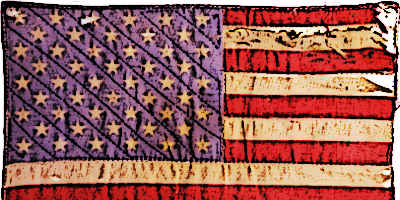
12. The Liberty Bell cracked when it was rung after the Declaration of Independence was signed
One of the most iconic symbols of freedom in America, Liberty Bell cracked when it was rung after the Declaration of Independence was signed. The bell is now housed in Philadelphia’s National Historic Park.
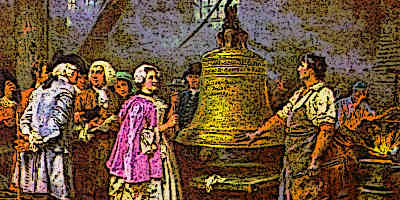
13. George Washington believed in reincarnation
George Washington believed in reincarnation. George Washington often spoke about the prospect of life after death and believed in the idea of reincarnation. In a letter to his wife Martha, he wrote, I wish I could invent some expedient to free my mind from these painful sensations.
But such is my condition that unless something intervenes to afford relief, I shall be miserable.
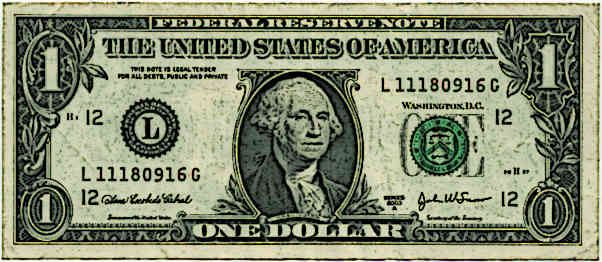
- American Revolution
- American Revolution *13 Suprising Things
- American Revolutionary War
- Boston Massacre *10 Suprising Facts
- Declaration of Independence
- End of the American Revolution
- Examining the Aftermath of the American Revolution
- Examining the Role of Propaganda in the American Revolution and Its Impact on Public Opinion.
- General Anthony Wayne *Madman of the Revolution
- Global Impact of the American Revolution
- John Hancock
- Secrets of John André
- The American Revolution: An Economic & Political Struggle
- The Boston Massacre – How Many People Died?
- Top 10 Events of the American Revolution
- Top 10 People of the American Revolution
- What Caused the American Revolution